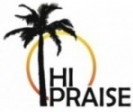The purpose of this research project was to find out if giving rewards for healthy behaviors will help people manage their diabetes better. The study was funded by the U.S. Centers for Medicare & Medicaid Services. The Department of Human Services receiveed grant funding while the University of Hawaii John A. Burns School of Medicine and Center on Disability Studies coordinated all grant activities.
Rewards were be distributed for:
Improving Self-Management of Diabetes
- FSBG Monitoring, verification of BG log = ≤ 20
- Attend 1st session of diabetes management education = ≤ 20
Improving Compliance with ADA Recommended Preventive Measures
- Pneumococcal and/or Influenza vaccination = ≤ 10
Improving Compliance with ADA Recommended Treatment and Management
- Retinal eye exam (annual) = ≤ 20
- Urine for Microalbumin test = ≤ 10
- LDL Cholesterol test = ≤ 20
- HbA1c = ≤ 20
Eliminating Barriers to Healthy Lifestyle
- Attend group or individual smoking cessation class = ≤ 20
- Attend counseling for behavioral health = ≤ 20
- Weight loss of 7% in 52 weeks (persons with BMI > 25) = ≤ 50
Improving in ABCs of Diabetes
- HbA1c decrease of 1% = < 20
- HbA1c goal of < 7% = ≤ 50
- BP goal of < 140/90 = < 20
- LDL Cholesterol goal of < 100 mg/dl = < 20
Maximum Total Direct Incentives: $320 per person/year
Incentives will include, but will not be limited to:
- gift cards for business in CHC neighborhood (e.g. gas station, supermarket)
- vouchers for CHC cafeteria or open market
- tokens to trade in for higher priced items (e.g. walking shoes)
